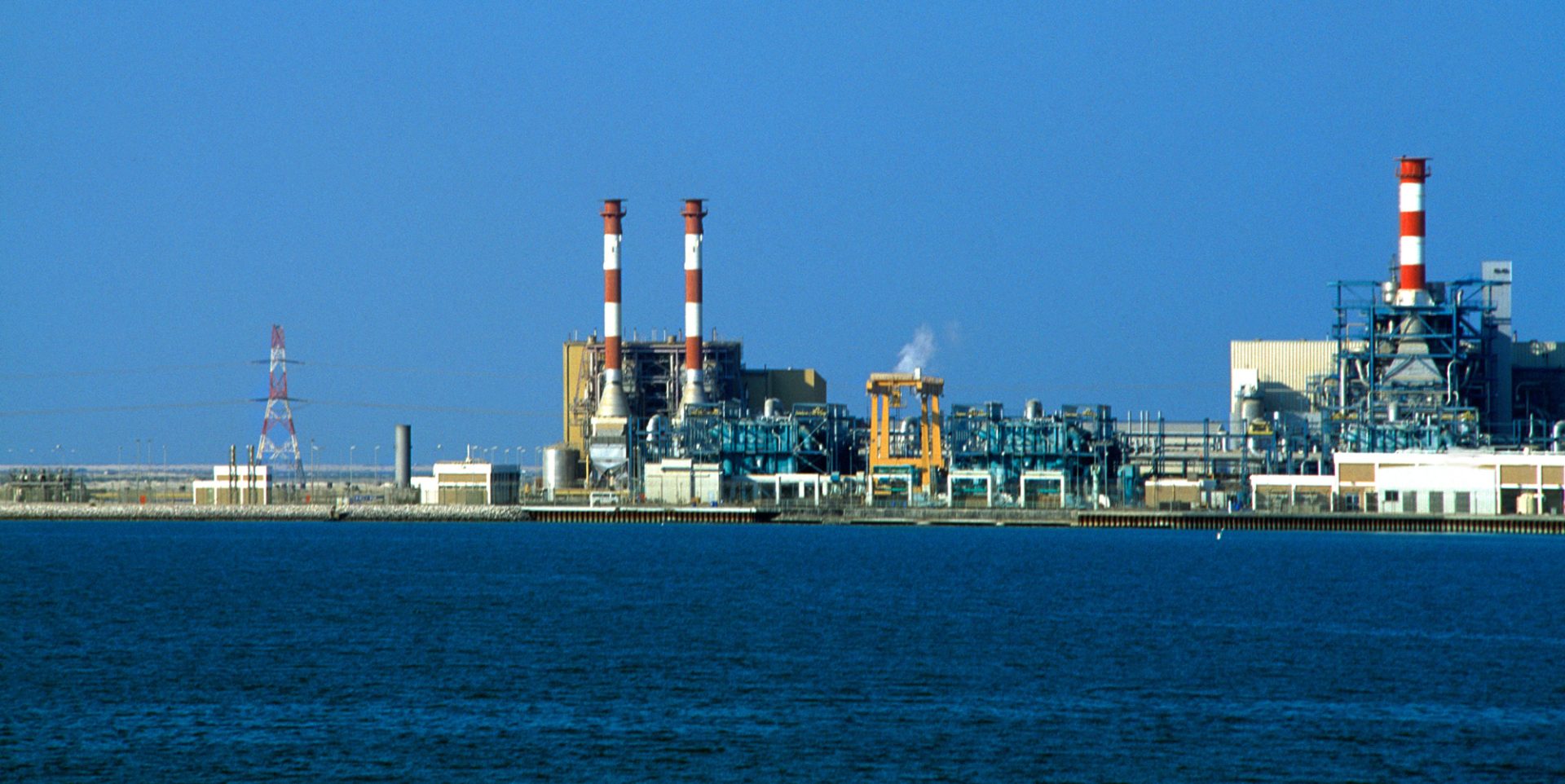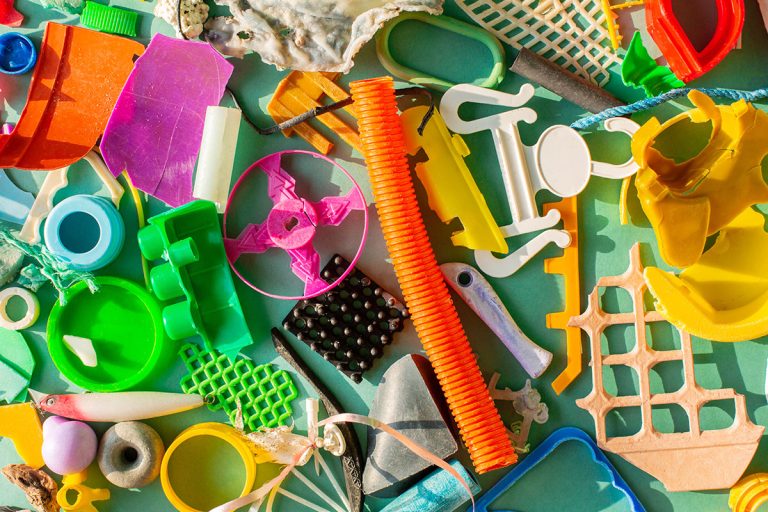A cool future for freeze desalination
The UAE continues its pioneering approach to generating fresh water with the aim of harnessing the potential of freeze desalination techniques.
High-quality waste water treatment and desalination technologies are optimal solutions to ensure water security in regions with insufficient freshwater sources. The UAE has become a world leader in developing robust, cost-effective and energy-efficient methods of desalination and already has an extensive water desalination network, which is the primary source of fresh water for the Emirati population. The desalination plants largely use a membrane-based reverse osmosis technique and a thermal method known as multi-effect distillation. Both are reasonably low-cost techniques and result in a high yield of fresh water.
Isam Janajreh, a faculty member working on desalination techniques at the Center for Membranes and Advanced Water Technology (CMAT) at Khalifa University, has spent many years developing and refining the processes involved.
“An efficient desalination process is surprisingly complex to achieve,” says Janajreh. “To separate salt crystals from water, you need to optimize operating efficiencies through controlling factors including input water pressure, heat, membrane thickness, membrane pore size and shape, and the conductivity of the materials used—to name but a few.”
The drawback to thermal-based desalination is that it consumes huge amounts of energy in generating high temperatures and, over time, corrosion in the system becomes a serious problem. Membrane fouling is another considerable challenge, and result in highly saline brine as a by-product, the release of which into the environment, is strictly regulated in the UAE. Increasing pressures on the water desalination system due to population growth in the region, mean that alternatives to current desalination methods are being investigated.
Salt crystals are removed by partially freezing the water which then solidifies, leaving the salt crystals behind in a highly saline brine.
One such alternative is freeze desalination. This process can be achieved in several ways, but is based on the same principle: salt crystals are removed by partially freezing the water which then solidifies, leaving the salt crystals behind in a highly saline brine. The separated ice is washed before being melted, producing fresh water. Freeze desalination processes are more energy efficient as they require less heat than thermal methods, and there is no issue with corrosion or membrane fouling, meaning that maintenance costs are far lower.
Janajreh recently teamed up with two doctoral candidates in mechanical engineering at KU, Hongtao Zhang and Khadije El Kadi, together with Noreddine Ghaffour at King Abdullah University of Science and Technology (KAUST) in Saudi Arabia, to review current research and development in different freeze desalination techniques1. Their insights will provide scientists with a valuable baseline to guide future research and develop these techniques to a commercial level.
“In the UAE, freeze desalination is still in the research phase, and we need to ensure higher freshwater production rates at low cost using these methods before commercialization is possible,” says Janajreh
There are two main freeze desalination techniques: direct and indirect. In direct freeze desalination, pressurised liquid refrigerant is injected into the brine. The refrigerants are insoluble and evaporate instantly as the brine solution quickly cools, allowing the refrigerant to be collected separately. However, direct contact with refrigerants carries the risk that the water produced could be contaminated, and the refrigerants used include butane, which is explosive. With indirect freeze desalination, the brine and refrigerant are separated by a solid barrier; the heat from the brine is drawn through the barrier to the refrigerant and the brine partially freezes on to the solid surface.
“Indirect freeze desalination has fewer problems associated with it, and also has the advantage of higher separation efficiencies,” says Janajreh. “However, all freeze desalination techniques still have a major stumbling block to overcome—salt trapped within the crystallized ice can make the water undrinkable. We plan to extend our current research at Khalifa University to investigate salt entrapment with the goal of reaching higher desalination efficiency at minimum cost.”
The UAE government has attracted researchers from all over the world with expertise in desalination and waste water treatment by providing extensive funding opportunities and practical support through state-of-the-art facilities. This has led to recent advances in membrane and thermal technologies and novel hybridization plants that combine desalination techniques with low-energy sources such as renewable power, notes Janajreh.
Such forward-looking investment will help the UAE move away from a reliance on fossil fuels in future, while ensuring that water reuse and desalination remain at the forefront of the country’s water security strategy.
Fostering research into freeze desalination in the UAE
Two Khalifa University PhD candidates, Hongtao Zhang and Khadije El Kadi, were part of Janajreh’s team in reviewing the status of freeze desalination techniques. For both students, who are studying for PhDs in mechanical engineering for desalination processes, the paper was a core part of their research projects.
Zhang was responsible for the technology overview, and the experimental development part of the paper.
“Without a doubt, one of the most important aspects of training in academic research is responsible and forward-thinking supervision.”
—Hongtao Zhang
“When we started working on this topic, freeze desalination was still emerging in the research community and there was not much recent review work in the area,” says Zhang. “We did extensive experimental and numerical modelling of the different processes, and this provided us with improved insights to compile a review.”
El Kadi was mainly responsible for reviewing the different modelling approaches for freeze desalination.
“Writing the paper provided us both with the chance to hone our skills in summarizing, extracting core content from previous literature, and comparing previous research approaches and results,” says El Kadi. “It also helped us learn to identify research frontiers, and what future focus is needed for this emerging field.”
“[Working on Janajreh’s team] helped us learn to identify research frontiers, and what future focus is needed for this emerging field.”
—Khadije El Kadi
“Without a doubt, one of the most important aspects of training in academic research are responsible and forward-thinking supervision,” says Zhang. “Our supervisor has provided excellent skills training and support, and we were delighted that the paper was accepted to a high-profile journal. It really encourages us to work hard and achieve more successes in the future.”
“Khalifa University, alongside other UAE universities, organized and encouraged students to participate in the UAE Graduate Student Research Conference (GSRC), which helped us learn to promote our research,” says El Kadi. “We are also actively encouraged to attend international conferences.”
References
1. Janajreh, I. et al. Freeze desalination: Current research development and future prospects. Water Research 229 (2023) | Article




